Free Range Duck
Free Range Duck – Duck raising is like raising chickens for meat, which can be a full-time specialized business requiring efficiency. The growing commercial market for duck meat is linked with the increasing population. Duck meat generally commands a good price, well above the prices received for chicken. The meat is marketed as fresh, frozen and chilled products, either whole or in parts.
There are problems associated with keeping ducks for egg production on a large scale because of low egg numbers, high feed consumption and the need to house ducks in small numbers.
The main egg-laying breeds of ducks can lay more and larger eggs than can hens, but ducks eat about 75% more feed.
For these reasons, most farmers concentrate on meat production. Ducks rearing is being promoted to small community farmers as a means of sustainable livelihood development. There are also a few smaller family farms that have ducks grown for them on contract farms, as well as operators who are involved in all aspects of production, plucking, and including direct sales.
Choosing a Place to Raise Ducks
The first thing that you must do is to choose a place on your land that is good to raise ducks. It is best to keep your ducks where you can watch them easily. So, the place that you choose should be as close as possible to where you live. Look for a place that has a shade for your ducks on hot days. There should also be a place for them to go for protection from wind or on days when it is cold or wet. If possible, look for a place on your land that has enough of the kinds of food that ducks like to eat. A good place is one near to water where your ducks can easily get to the water and where they can swim. Raising a flock of ducks is only one use for your land, so be careful not to choose a place for them that could be better used for something else, such as planting crops or growing a vegetable garden. Remember, that ducks can live just about anywhere outside as long as they can find enough to eat and drink.
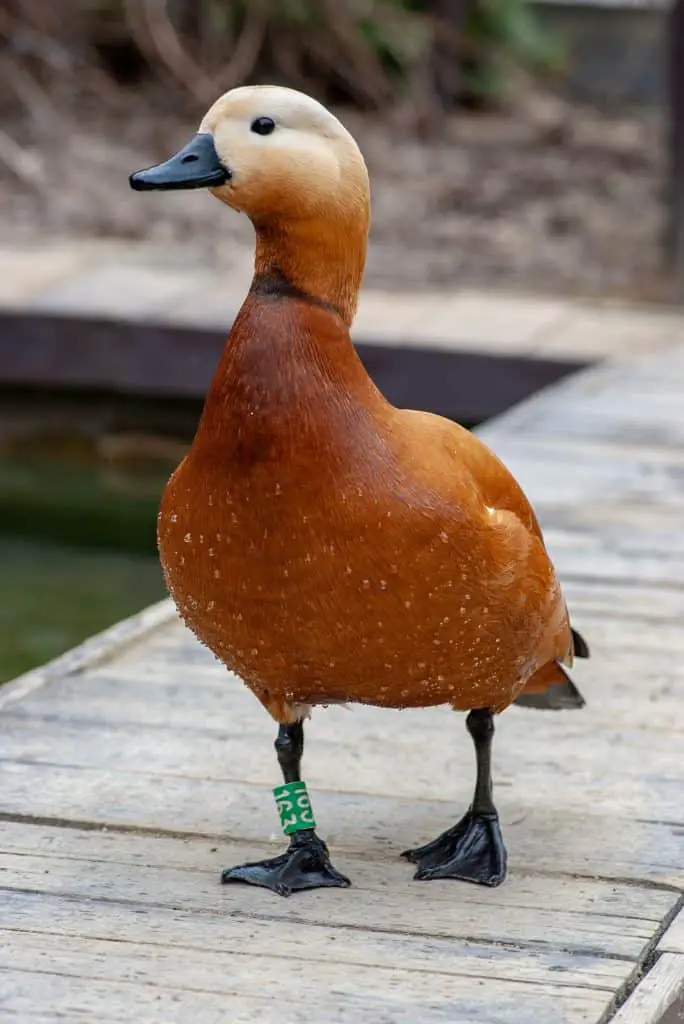
How to Keep Ducks Safe and Well
Although ducks can live outside by themselves, they will live much better if they have a shelter. The main reason for building a shelter for your ducks is to keep them safe from enemies, Predators at night when they are sleeping. Ducks, especially young ducks, have many enemies. You must be careful to protect them from
Duck Predators
- Dogs
- Cats
- Mongoose
- Rats
- Snakes
- Thieves
There are also other reasons for building a shelter which are as follow;
- Ducks sleep on the ground. If the ground is cold or wet or dirty, they may get sick.
- If you build them a shelter, you can keep it dry and clean so your ducks will not get sick.
- Strong sunlight is bad for ducks. They need protection from the sun in very hot weather.
- If you build a shelter for your ducks, they can go inside when it is very hot.
- Ducks lay eggs mostly at night or early in the morning.
- If you build a shelter with nests and keep your ducks inside at night, you will be able to collect the eggs more easily.
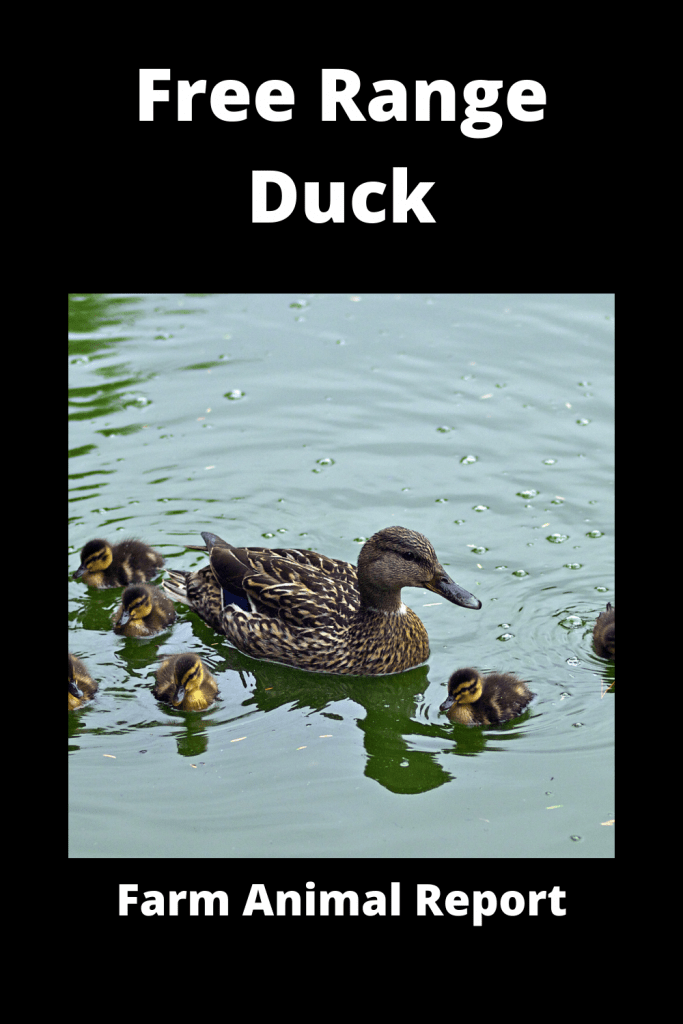
Caring For the Ducklings
Ducklings, which have been hatched naturally, require sometimes protection. The duck that hatched them will look after them until they are old enough to look after themselves. But not all predators the duck can deter. Sometimes duck and ducklings must be kept enclosed during the first weeks for protection against predators. Day-old-ducklings you buy (hatched in an incubator) need extra attention. You need to pay attention to warmth, water/feed, and ventilation.
Newly hatched ducklings cannot maintain their own body temperature so you have to keep them warm. The most favorable time for raising ducklings is during the rainy season. During the first 10 to 14 days ducklings are kept in several baskets with about 5 cm of rice husks or straw at the bottom of the basket. This is changed frequently to keep the ducklings dry and comfortable. The basket is covered with a loosely woven jute bag to protect the ducklings from cold at night. The ducklings are kept at about 82 Degrees, 28 °C for the first 10 to 14 days.
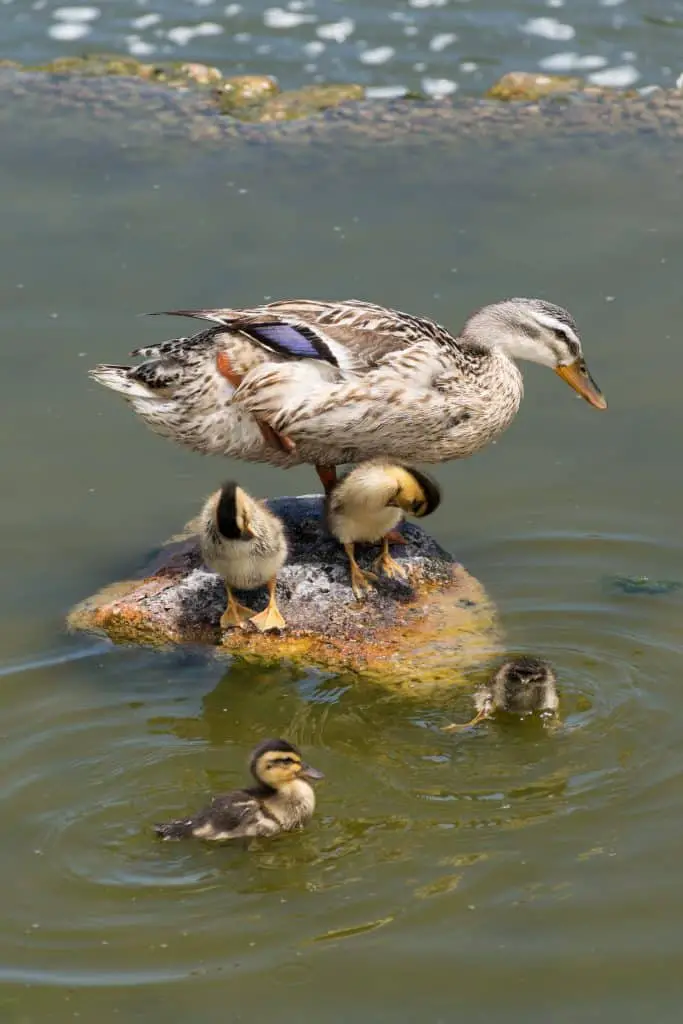
Ducklings start eating one day after hatching and they grow rapidly. They are fed boiled rice, broken rice, rice bran, oil cake, chopped earthworms, snails, fish, green vegetables or water plants and crushed wheat. Feeding is done in a separate (single) basket. After feeding they are put on a dry jute bag or on a layer of husk or straw in a separate basket until they have dried off. They are then returned to their original baskets. As an alternative to the basket you can choose a circular chicken wire floor covered with straw and an external heat source. You can keep them close to the heat source by bending a flexible board around the ducklings in a circle. Elevate the wire floor from the ground to improve ventilation and to remove manure.
The heat source can be a stove with slow-burning sawdust or an electrical lamp shining in a clay pot or an infra-red lamp. You can tell whether the ducklings are too warm or too cold by how they behave. When the temperature is too high the ducklings will try to get as far away from the heat as they can. If the ducklings move freely throughout the cage then the temperature is right for them.
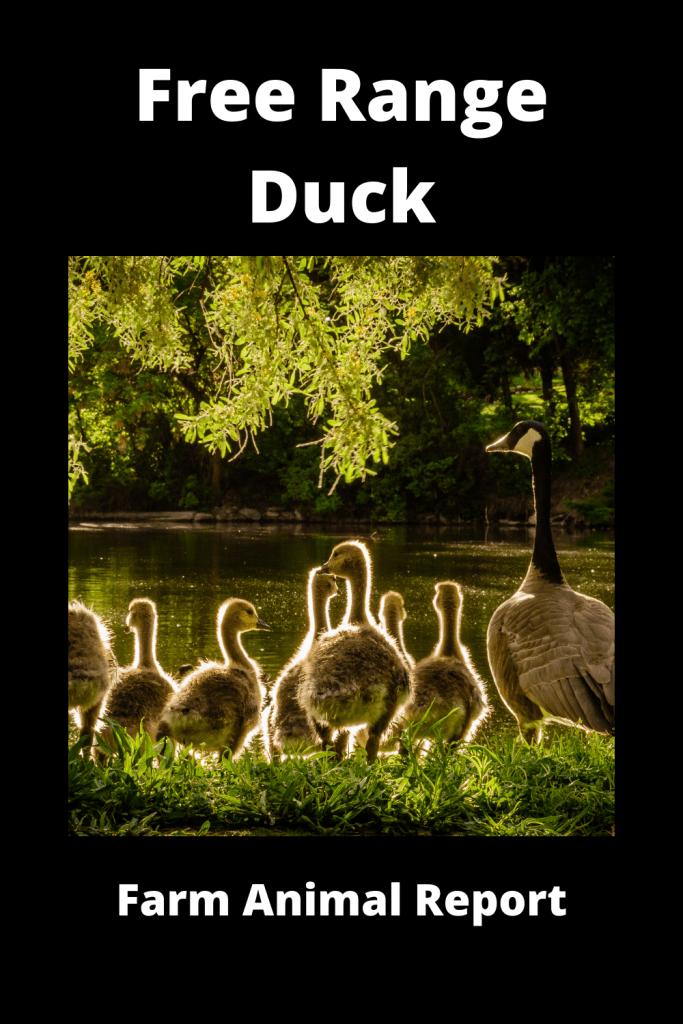
From about 2 to 4 weeks the ducklings are kept on rice husk or straw with plenty of fresh air and sunlight. During the day they are kept confined and provided with a mixture of feed and clean drinking water. Simple bamboo containers are used for feeding and watering. From 4 to 8 weeks the ducklings are provided with 12″ x 12″. 0.30 x 0.30 m floor space per bird. In the morning they are given clean water and a mixture of feed. After some minutes of feeding, they are allowed to forage in safe (water) areas. They are brought back to the house before dark. A small quantity of feed is given before putting them inside the house. This encourages the ducklings to return home with their farmer.
Drinking-Water
The presence of drinking water is very important for ducklings. There must be sufficient, clean water present, otherwise, the ducklings will become sick. You have to make sure the ducklings do not try to swim in their drinking water. This not only makes the water dirty, but it can also make the ducklings sick. Adult ducks have a layer of fat over their feathers which prevents the feathers from getting wet.
In a natural situation a mother duck will also rub the fat into the feathers of the ducklings that she has hatched herself.
The feathers of ducklings from an incubator do not have fat over them, to begin with. Ducklings cannot rub the fat into their own feathers until they are about three weeks old. This is not a problem as long as they do not try to get into the water. You can stop them from sitting in the drinking water by putting stones in the bowl or putting chicken wire over the top.
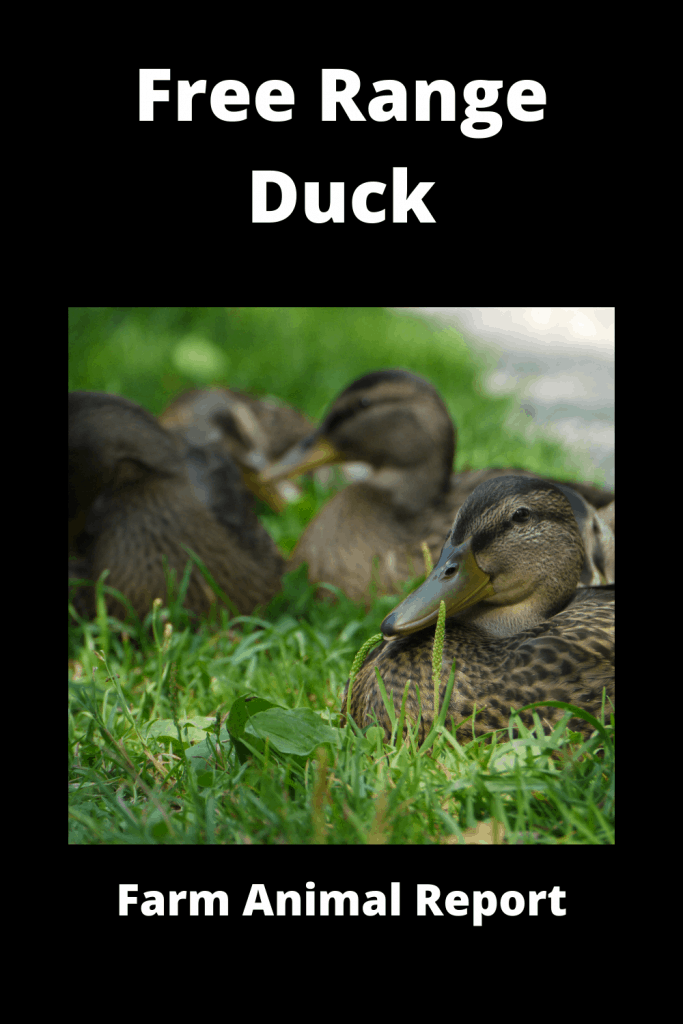
Ducks need water in order to be able to absorb nutrients from feed and also to eliminate toxic substances from the body. Water is also needed to maintain constant body temperature; it is particularly important when the weather is warm. Ducks pant in order to lose heat and therefore cool themselves down when it is hot. Panting results in a loss of carbon dioxide from the blood and leads to respiratory alkalosis. This panting can be prevented by 0.25 to 0.5 % sodium bicarbonate to the drinking water. Other factors, which also influence the amount of water ducks require, include the type of feed they get, laying frequency and the size of the duck. An adult duck needs, 1/2 Gallon, 2 liters of water each day.
Feeding
Ducks can graze and digest local feed easily like snails, water weeds, grass, small fish, shellfish, and insects. They will get enough protein and vitamins from it. In addition, they need energy. You can supplement the ducks feed with energy-rich feeds such as rice, cassava (byproducts), sago, sweet potato, etc. You can use this extra feed to encourage the ducks to come inside in the evening.
Food Poisoning
Ducks may also be poisoned by poisonous plants or decomposing animal carcasses. This is called botulism. Make sure that all the water places that ducks have access to be free of decomposing material.
Weed killers and insecticides may also poison ducks. If ducks eat insects or plants, which have been treated, then they will eat the poison.
Many of these poisons are not eliminated from the duck but accumulate in its body. If too much accumulates then the duck will become sick or even die. Their meat is not to be eaten.
Care of Eggs
Care of the eggs begins the moment they are laid. Ducks usually lay their eggs early in the morning. This means that you only need to collect eggs once a day, in the morning. It is best to collect the eggs as soon as possible after they are laid. This makes it easier to clean them, and you can cool them quickly if you need to keep them. Dirt left on eggs can cause disease to penetrate the shell and be absorbed by the egg. This causes the eggs to rot or become infertile.
Two Methods to Clean Eggs:
Dry method
Clean as much dirt off the egg with a dry cloth, brush, or knife. This is a good way to remove the worst and visible dirt.
Wet method
This method is only suitable when you are selling (or eating) the eggs: Dip the eggs in warm water for no longer than 20 seconds. The water should be a little warmer than the eggs so that you can clean them well.
If you want the eggs to hatch, it is better not to wash them in water. Eggshells have small holes (pores) that open up when the egg is put in water. Diseases can enter the egg through these holes, which may mean the egg will not hatch. Once you have cleaned the eggs you need to cool them quickly.
Storing Eggs
You can collect and store eggs in order to sell every other day or once a week. You can also collect and store eggs so that you can incubate many at the same time. Always keep eggs that you are going to sell in a cool place. The shorter the period the eggs are kept the less important the storage temperature is. Eggs that are going to be incubated must be kept at a storage temperature between 55 degrees 60 degrees, 13 – 16 °C. If the eggs are stored at a warmer temperature (16 – 38 °C) the duckling will start to develop, but the process goes so slowly that the duckling will die in the egg. Eggs for incubation can be stored for a maximum of seven days. After seven days the number of stored eggs that will hatch decreases rapidly.
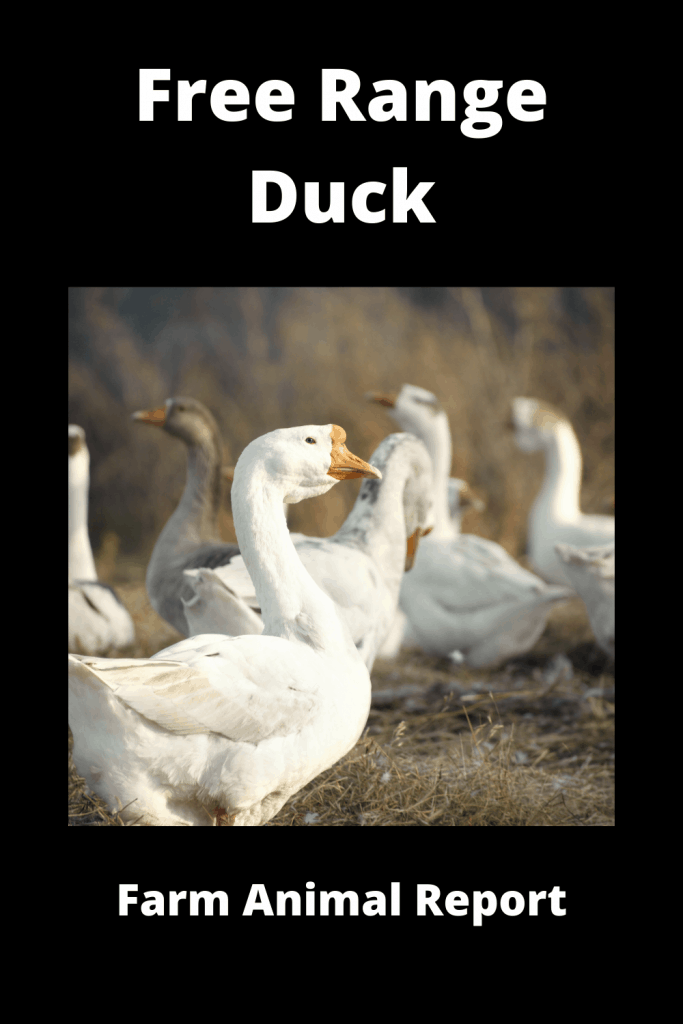
Duck Health
The normal behavior of a duck is to be alert. They often waddle around and peck as they investigate the surroundings. Ducks will emit characteristic quacking or honking noises when their territories are entered. Ducks are resistant to common avian diseases and internal parasites. The infestation of internal parasites is prevalent only among those ducks which have access to stagnant water and over-crowded pond. Ducks parasites include flukes, tapeworms, and roundworms. The external parasites are an infliction rather than an ailment. These include lice mites, fleas, and ticks. These cause irritation and annoyance leading to loss in egg production. Ducks should appear healthy and show normal behaviors. Signs of good duck health depend on age, sex, and breed. Important indications of good health are as follows:
Good Health Characteristics
- Good posture
- Vigorous movements if disturbed
- Clean and healthy skin o Good plumage
- Well-formed shanks and feet
- Effective walking
- Preening
- Active feeding and drinking
- Clear, bright eyes
Duck Poor Health Symptoms
The early symptoms of stress or ill health can be the following:
- Head pulled into the body
- Huddling, appearing chilled
- Changes in feed and water intake
- Lack of preening, general inactivity
- Diarrhea and Problems with coordination (walking/sitting)
- Drooping of the eyelids, reduced or squinted eyes
- Puffy head and lower live weight
World Duck Breeder Associations
| Duck Association | Location | Link |
|---|---|---|
| NSW Waterfowl Breeders Association | Australia | NSW |
| Rare Breeds Poultry | Australia | Rare Breeds Poultry |
| International Waterfowl Association | Minnesota | IWBA |
| National Call Breeders of America | Ohio | NCBA |
| Breeders Associations | Belgium Canada South Africa UK | BelgiumSouth AfricaCanadaUK |
We Built a Chart for Free Range Natural Food for chickens / Pretty close comparison
Natural Foods for Free Range Chickens
| Insects They Love to Eat | Insects they will not eat |
|---|---|
| Earthworms | Elderbugs |
| Grasshoppers | Lady Bugs |
| Grasshoppers | Honey Bees |
| Ants | Wasp |
| Terminates | Bumble Bees |
| Grasses | Stink Bugs |
| Green Leafy | |
| Berries | |
| Hookworms | |
| Larvae | |
| Spiders | |
| Scorpions | |
| Beetles | |
| Spiders | |
| Grubs | |
| Mealworms | |
| Crickets | |
| Ticks | |
| Slugs | |
| Mayflies | |
| Parisite Eggs | |
| Gnats | |
| Cockroaches | |
| Japanese beetles | |
| Earwigs | |
| Butterflies | |
| Salamanders | |
| Tiny Lizards | |
| Tomatoe Worms | |
| Cabbage Worms | |
| Fleas | |
| Pill Bugs | |
| Amphids | |
| Misquitos | |
| Fly / Maggots | |
| Fire Ants |
Insects they will Eat
Insects they will not eat


